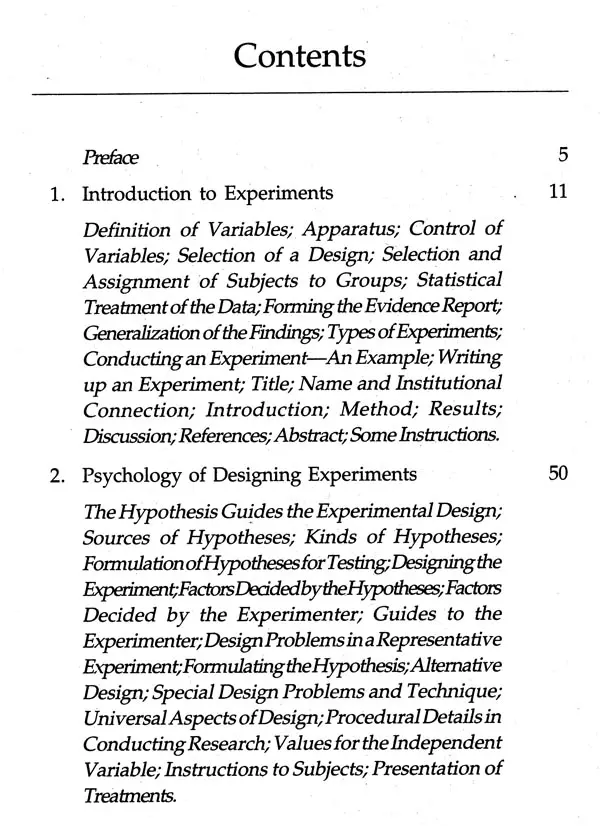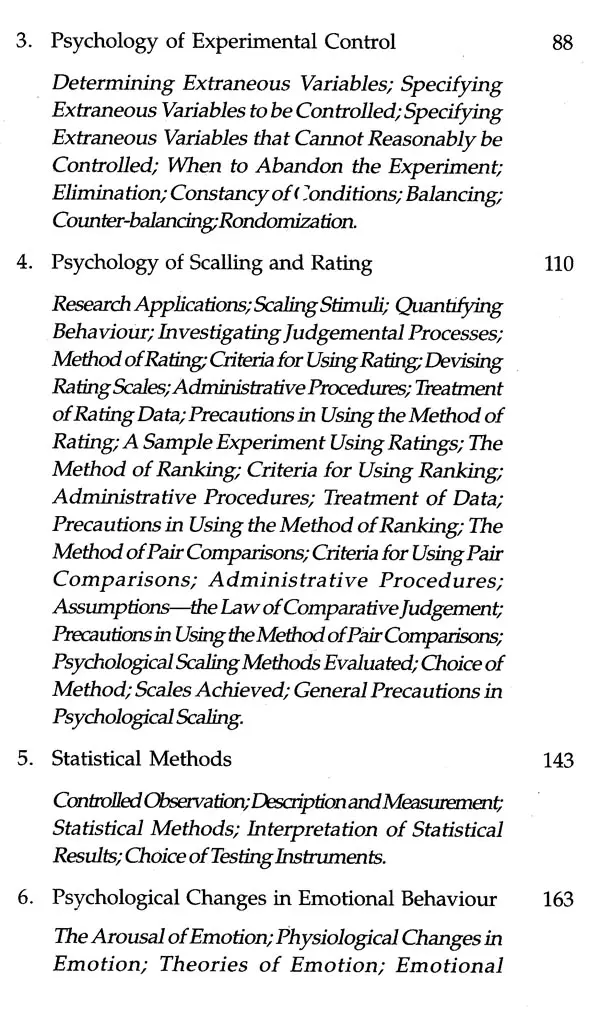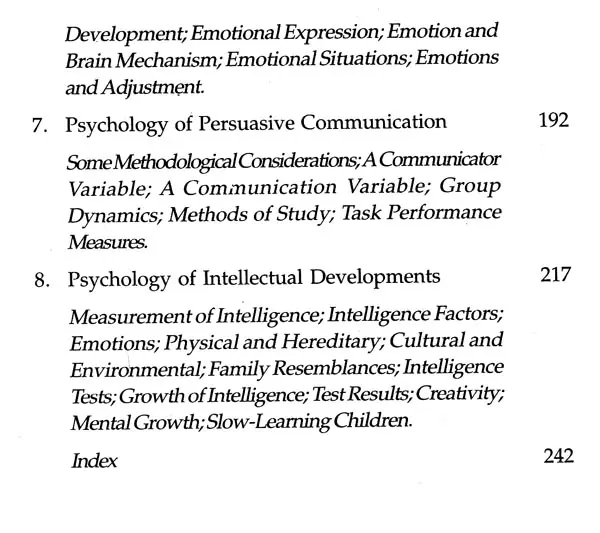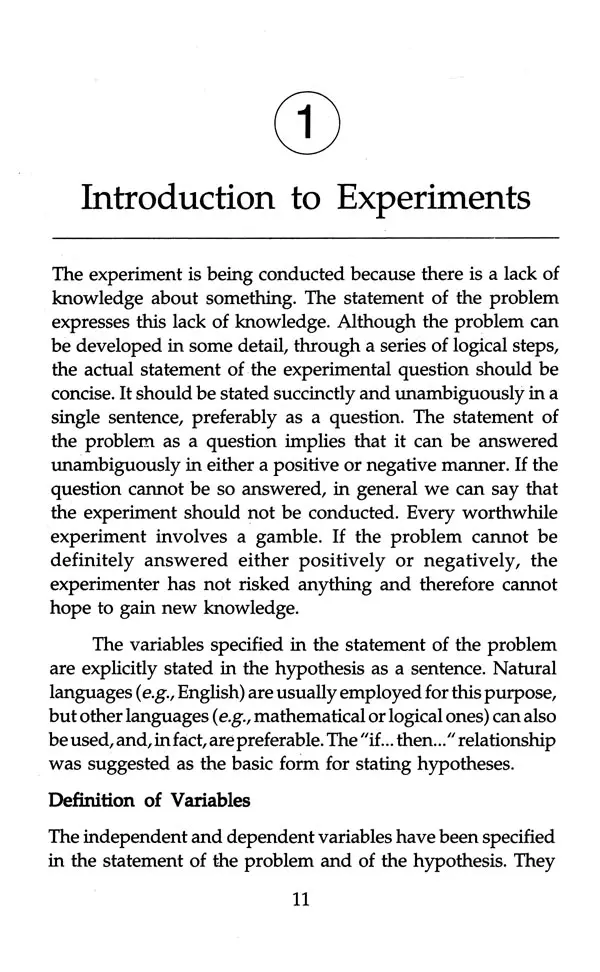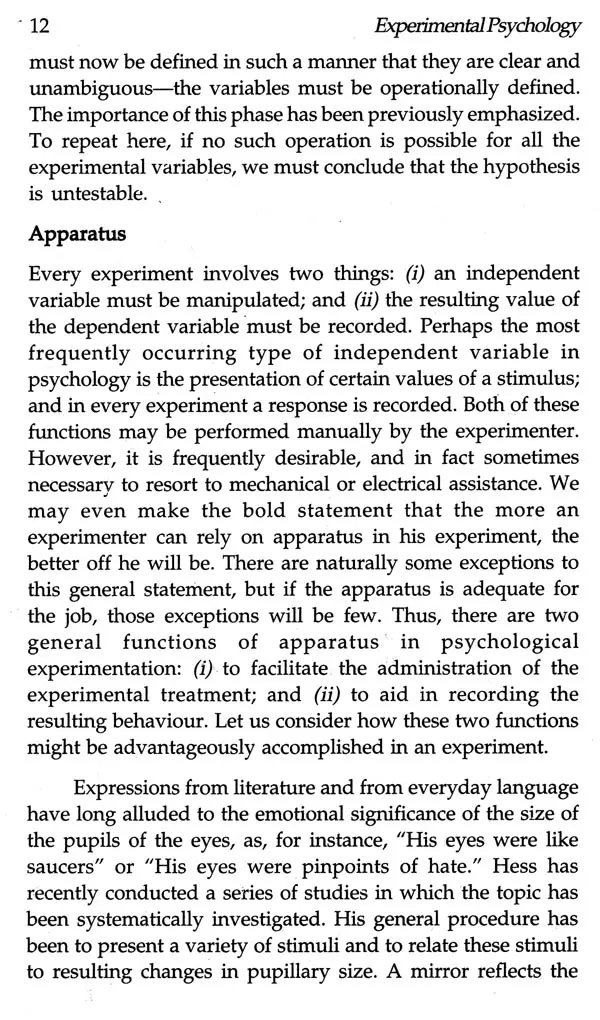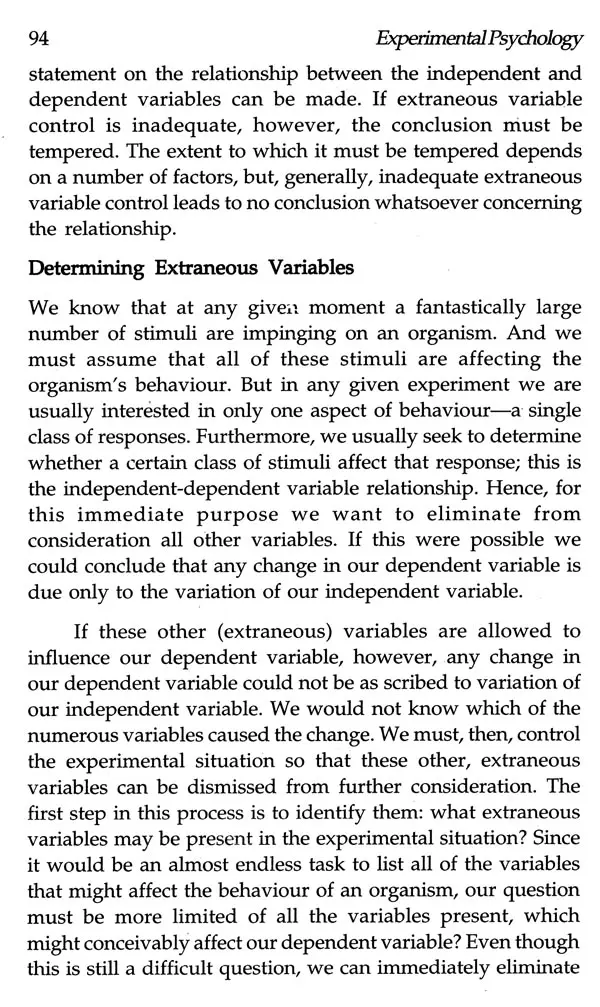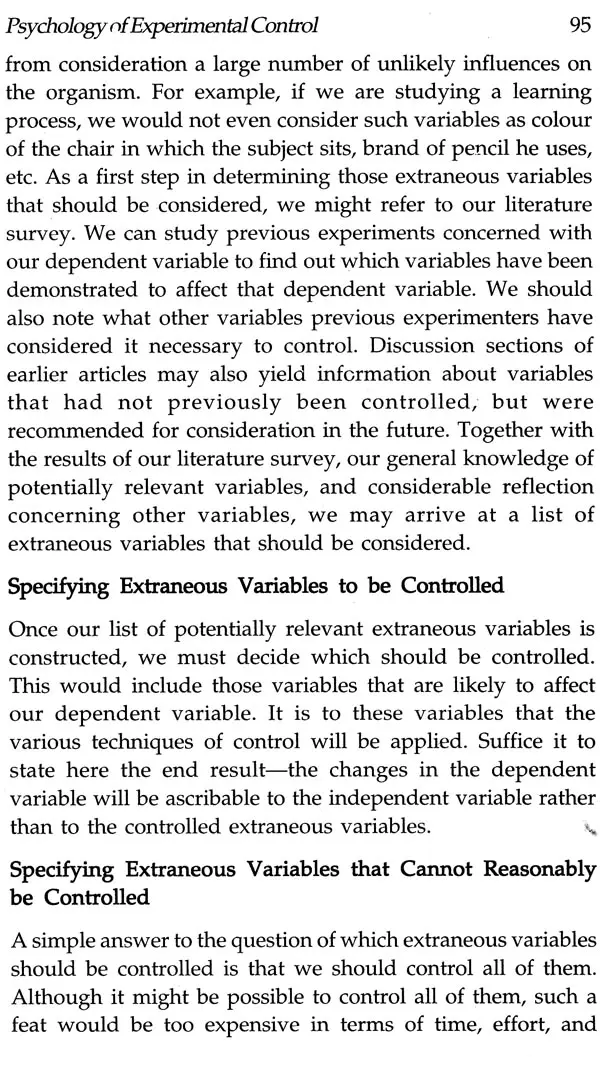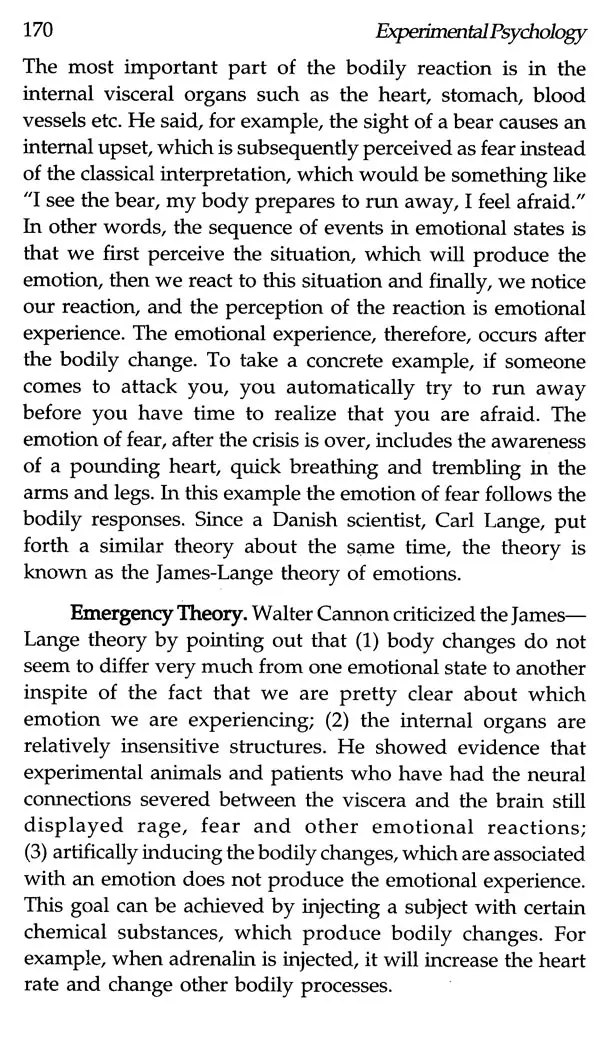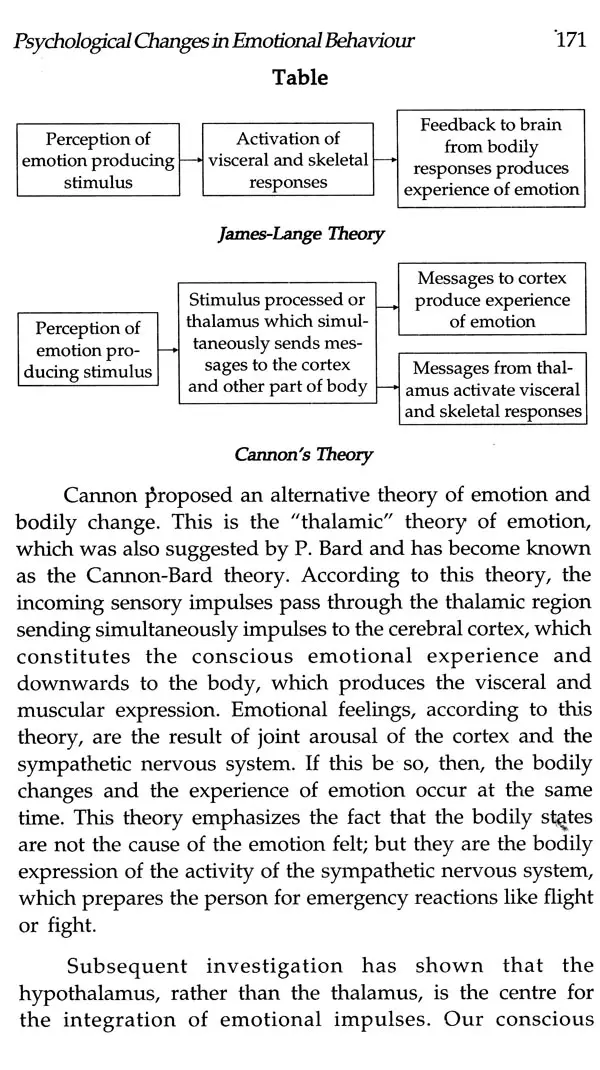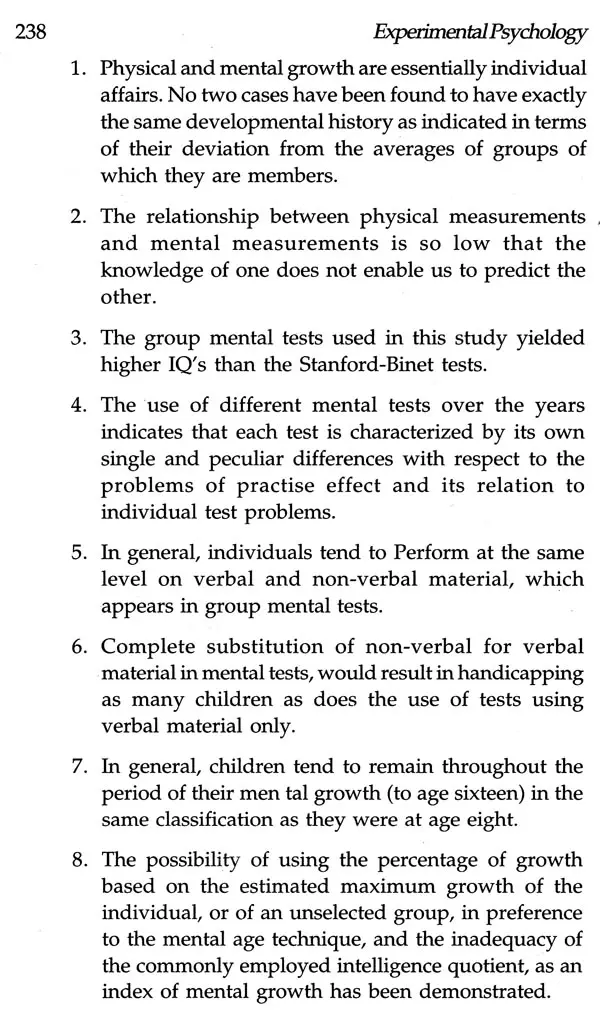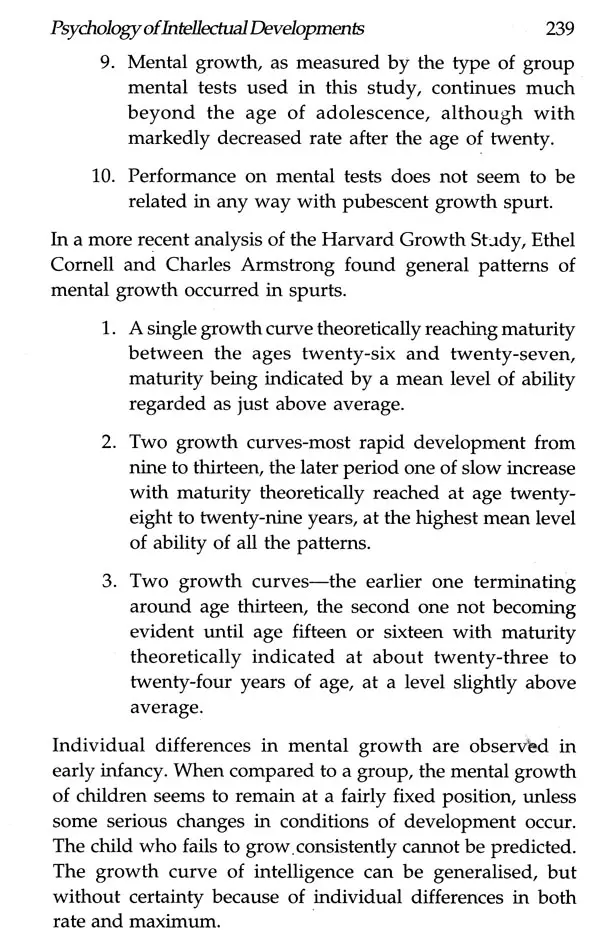About the Book To design an experiment is to plan just how the hypothesis is to be tested. As one of the creative activities of the scientist, the designing of a study can be even more fun than conducting it. We see evidence of this when professors design research but let their graduate assistants work to carry it out. It may appear in some investigations that there is no hypothesis at all. The investigator may be unwilling to predict what the effect is expected to be. We should note, however, that he is usually betting his time and somebody's money that there will be an effect. It is this consideration that leads us to assert that all experiments test hypotheses.
The major topics dealt with in this book are: Introduction to Experiments; Psychology of Designing Experiments; Psychology of Experimental Control; Psychology of Scaling and Rating: Statistical Methods; Psychological Changes in Emotional Behaviour; Psychology of Persuasive Communication; Psychology of Intellectual Developments; etc.
About the Author M. L. Ojha is a renowned professor of Psychology and did his Master's degree in Psychology and Sociology and P.G. Diploma in social work. He has retired from Jadavpur University, Kolkata, as a professor and now he has been associated with many research organisations and working on various research projects to changing Human Behaviour in modern society. Widely traveled all over the world, he has organised and participated in many national and international conferences related to social work. He is sincerely devoting his life to social welfare activities. He has edited many research articles on Psychology and Sociology which have been published in professional journals of repute.
Preface To design an experiment is to plan just how the hypothesis is to be tested. As one of the creative activities of the scientist, the designing of a study can be even more fun than conducting it. We see evidence of this when professors design research but let their graduals assistants work to carry it out. It may appear in some investigations that there is no hypothesis at all. The investigator may be unwilling to predict what the effect is expected to be? We should note, however, that he is usually betting his time and somebody's money that there will be an effect. It is this consideration that leads us to assert that all experiments test hypotheses. The assertion is made with full knowledge that there are vast differences in how the hypotheses are generated, how precisely they are stated, and how adequately they are tested? The hypothesis to be tested, whether formally worded or not, is an important determiner of many parts of the experimental plan that is chosen.
Book's Contents and Sample Pages

